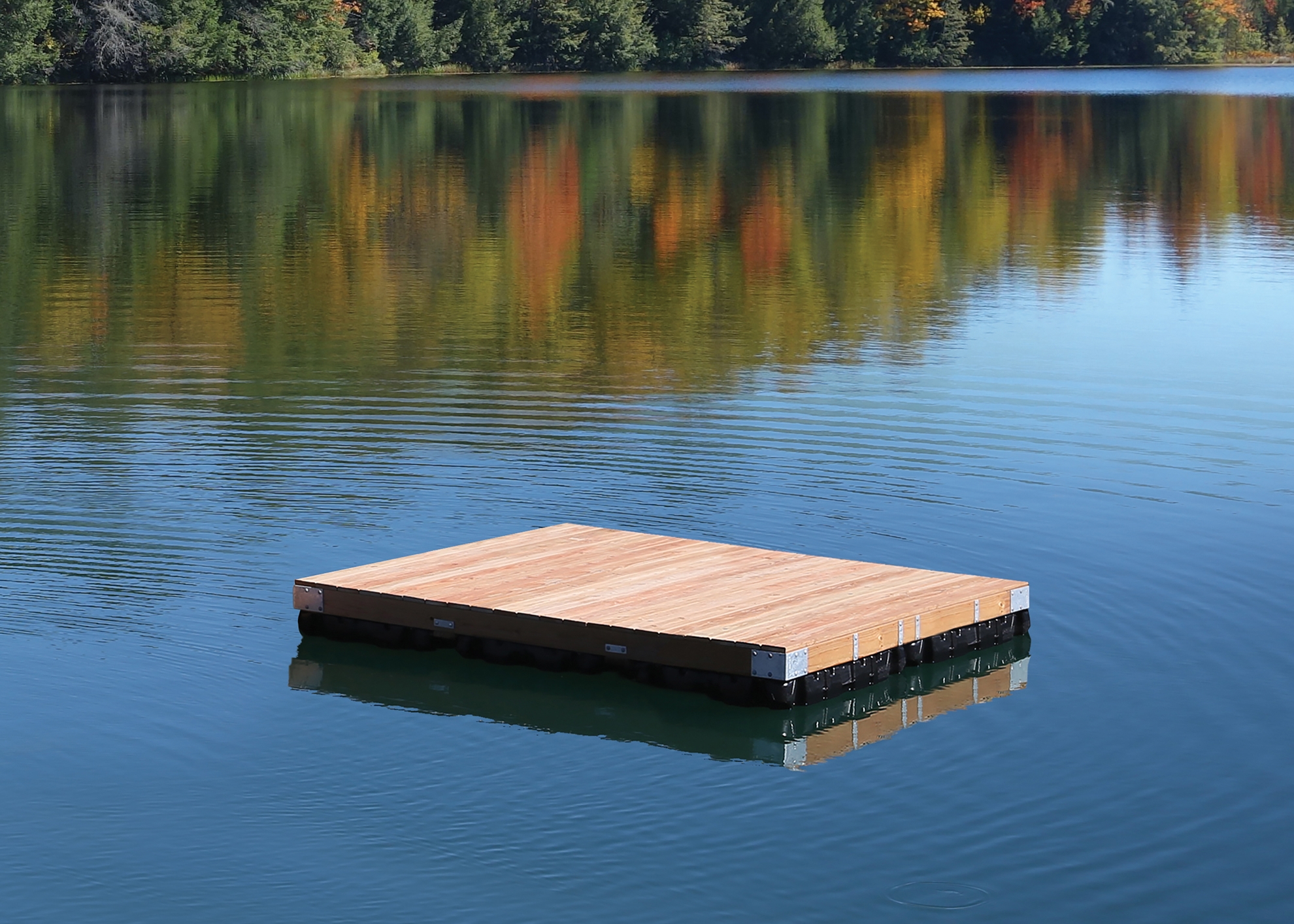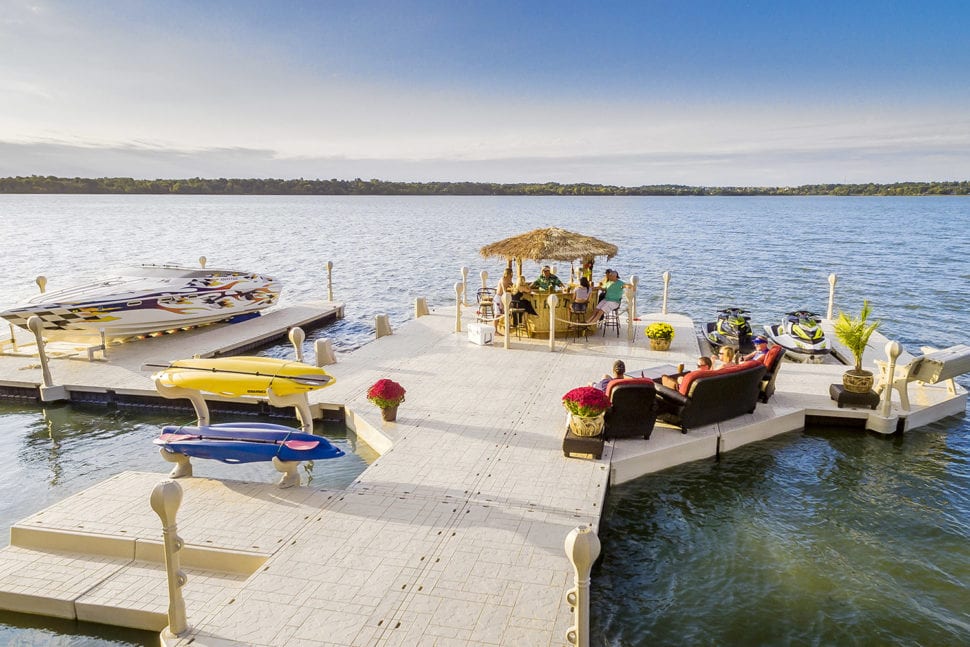Leading Reasons to Partner with a Reliable Floating Dock Company for Your Next Project
Leading Reasons to Partner with a Reliable Floating Dock Company for Your Next Project
Blog Article
The Ultimate Overview to Selecting the Ideal Floating Docks
Choosing the suitable floating dock calls for an extensive understanding of different components that influence both performance and long life. Factors such as dock types, materials, and crucial features substantially affect your decision-making procedure.
Recognizing Floating Dock Kind
When selecting a floating dock, it is vital to recognize the numerous kinds readily available, as each offers distinct purposes and applications. Floating docks mostly come under 3 groups: modular, stationary, and pontoon docks.
Modular docks are made up of individual areas that can be quickly assembled or reconfigured, making them excellent for altering water levels and varied uses, such as industrial operations or leisure activities. Their flexibility enables personalization based upon certain demands.

Pontoon docks are defined by their buoyant structure, frequently composed of multiple pontoons that provide security and support. They are especially well-suited for larger vessels and are frequently used in marinas or for beachfront residential or commercial properties. Recognizing these kinds aids in picking the most ideal floating dock to satisfy particular needs, guaranteeing optimal capability and security.
Key Products for Toughness
Selecting the appropriate products for floating docks significantly effects their toughness and long life. The most usual materials include wood, plastic, metal, and composite products, each offering distinctive benefits and limitations.
Timber, often preferred for its visual charm, needs routine upkeep to hold up against moisture and decay. Pressure-treated lumber can enhance resistance to rot, but it may still be susceptible to insects and weathering.

Plastic docks, made from high-density polyethylene (HDPE), are resistant to corrosion, UV radiation, and influence, making them a prominent choice for seaside atmospheres. Their lightweight nature additionally promotes simple setup and moving.
Metal docks, generally constructed from light weight aluminum or galvanized steel, supply outstanding toughness and resilience. They are resistant to corrosion, especially when treated, however may require additional insulation to stop warmth build-up in hot environments.
Composite products, combining wood fibers and plastics, provide the benefits of both timber and plastic, withstanding moisture and fading while calling for very little maintenance. - floating dock services
Inevitably, the selection of materials should align with ecological problems, planned usage, and upkeep preferences to ensure the floating dock continues to be functional and visually pleasing over time.
Crucial Attributes to Think About
While the choice of products is vital, taking into consideration necessary features for floating docks is just as crucial to make sure ideal performance and user fulfillment. One vital function to assess is the dock's buoyancy capability, which determines just how much weight it can support without immersing. dock company. This is important for fitting watercrafts, individual watercraft, and even leisure tasks
Additionally, portability is a substantial consideration. Depending upon your requirements, you might desire a dock that is easy to deliver and dismantle, specifically if you plan to relocate it seasonally. Stability is another essential feature; a well-designed floating dock should minimize activity triggered by wind and water currents, giving a safe and secure system for individuals.
Security functions, such as non-slip surfaces and rounded sides, are additionally important to stop mishaps, especially in wet conditions. Furthermore, take into consideration the schedule of devices, such as bumpers, cleats, and ladders, which can boost the capability of your dock.
Setup and Maintenance Tips
Establishing and maintaining a drifting dock needs careful preparation and attention to information to ensure its long life and ideal performance. Begin by picking an ideal location that minimizes direct exposure to strong currents and waves, which can cause wear and tear. Make certain that the water depth is sufficient for the dock's elevation and that it is secured safely to avoid activity.
During installation, comply with the producer's standards carefully, as improper assembly can endanger stability. Usage high-grade materials immune to corrosion, such as light weight aluminum or treated timber, to boost sturdiness. On a regular basis inspect all parts, including floats, adapters, and anchoring systems, for indicators of damage or wear.
If your dock makes use of flotation gadgets, guarantee they remain cost-free and undamaged from leaks. By adhering to these setup and maintenance tips, you can take pleasure in a practical and reliable floating dock for years to come.
Budgeting for Your Dock
Budgeting for your dock is a critical step that can significantly impact your overall complete satisfaction and financial investment in a waterfront residential property. Developing a clear budget plan aids you navigate the various Get More Info options available and guarantees you make informed choices that line up with your economic capabilities.
Begin by determining the size and design of the dock you require, as these aspects will considerably affect the cost. Floating docks can differ considerably in price, relying on products, buoyancy, and attributes like accessories and ramps. Study different manufacturers and vendors to compare rates and comprehend the marketplace value.
Along with preliminary costs, take into consideration continuous expenditures such as maintenance, insurance, and possible repair work. Allocate funds for these persisting costs to stay clear of surprises down the line. It's also sensible to budget plan for any essential licenses or inspections, which might be required by regional regulations.
Lastly, bear in mind the potential roi. this website A well-planned dock can improve your residential property's value and appeal, giving a positive economic impact in the long-term. By budgeting properly, you can guarantee that your dock fulfills your needs without jeopardizing your economic stability.
Verdict
In conclusion, choosing the suitable floating dock demands an extensive examination of different aspects, consisting of dock kinds, products, essential features, and installation processes. Prioritizing resilience and compliance imp source with regional laws inevitably boosts capability and property value. Careful factor to consider of financial restraints will certainly even more guarantee an audio financial investment. By adhering to these guidelines, people can make educated decisions that advertise lasting fulfillment and functionality in aquatic environments.

While the option of products is crucial, considering crucial features for floating docks is equally essential to make sure optimal performance and individual contentment.Establishing up and maintaining a floating dock needs cautious preparation and focus to information to ensure its longevity and optimal performance. Floating docks can vary dramatically in rate, depending on products, buoyancy, and features like devices and ramps.In verdict, picking the ideal floating dock necessitates a comprehensive examination of different aspects, consisting of dock kinds, products, essential features, and installation processes.
Report this page